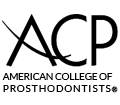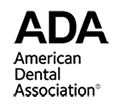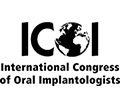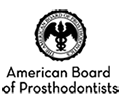You have a problem. We have the solution.
-
All on 4 Ricky
-
All on 4 Sheryl
-
Corrosion Resistant
Five Factors To Consider Before Getting All-on-4® Dental Restoration
The dental treatment method for replacing missing or infected teeth like the innovative All-On-4® implant system, which uses fixed full-arch dental implant bridges to improve a patient’s oral health, was virtually unheard ten years back.
Today, however, patients specifically ask for this treatment even if it’s not advisable for their case. According to the dental expert and highly-experienced Prosthodontist, Dr. Darian Kaar, DDS, each dental implant case is different. At his dental clinic, the All in 4 Dental Implant Center, in Dallas Fort Worth, he recommends getting a professional assessment done for five critical factors before making a final decision about receiving the cutting-edge All-on-4® treatment, which can dramatically change your oral health, confidence, and smile.
Follow Essential Guidelines For Receiving Dental Implant Treatment
Dental Implantation surgery always involves customization as every single case is different from the other. This factor makes receiving dental implants the best dental restoration strategy. Before any treatment plans are drawn up, the dentist analyzes the state of his/her patient’s oral health. Then, using a broad understanding of the patient, your dentist designs the best treatment plan. Routinely appearing factors that affect dental implantation patients are periodontal disease, parafunction, size of the space to be restored, occlusion, and the patient’s budget.
Listening to the patient and their dental woes is an important aspect of a successful dental visit. Whether the dentist deals with a patient who has lost all their teeth already (edentulous) or one who is about to lose most of their teeth - dental implant treatment involves extractions.
A full-arch fixed implant bridge is the latest fad that’s taken the dental world by a storm. Materials like acrylic fused to titanium, monolithic zirconia, and porcelain are used to fabricate dental bridges, which are stacked to a cobalt-chromium frame. Four to six dental implants are utilized to provide structural support to the bridges.
In fact, many dental practices advertise All-on-4® to be the best available treatment option for patients who are likely to lose all their teeth. The pricing for the entire procedure is often packaged into one single treatment cost bundle to make the process simpler.
Simultaneously, companies like ClearChoice aggressively market the All-on-4® restoration treatment to increase patient awareness about available treatment plans. Also, the internet provides a massive cache of information about the benefits of All-on-4® bridges over traditional implants.
Looking back just five to 10 years ago, information about All-on-4® bridges was virtually non-existent. These days, however, patients already know about All-on-4® bridges to the extent that they request this treatment option themselves.
The questions that often arise are:
Are All-on-4® bridges always advantageous?
What are their shortcomings?
The All-on-4® treatment requires a highly-trained surgeon to perform the surgery for a reason. It’s a complex procedure that’s difficult to comprehend in just one article. Dentists consider multiple factors before they recommend the All-on-4® treatment to their patients. When asked to narrow the factors down, experienced dentists like Dr. Kaar mentions the five factors he encounters regularly.
The five factors to consider before getting the All-on-4® dental restoration done are:
Having trouble with your speech
Experiencing discomfort and difficulty while adapting to bridge thickness
Proprioception
Parafunctional habits
High caries index
Let us now look at how these factors and how they affect the professional treatment recommendation given by the dentist.
Patient Mentions Speech Issues During Initial Consultation
Speech impediments are often caused due to the positioning of specific tissues and bones in the oral cavity. Even if a patient presents with a minor speaking issue: to an All-on-4® patient, its anything but minor.
All-on-4® dental bridges are supported by implants. Vertical as well as horizontal support is required to provide stability to the implant-supported dental bridges. Depending on what restorative material is used in the bridge, most bridges require 15 mm height or more if need be. To create this space, the dental surgeons have to oftentimes replace healthy bone and soft-tissue volume alongside the volume of the missing teeth.
As the replaced soft tissue is denser than the original bone and soft-tissue volume, the part the bridge next to the soft tissue will be bulky. This added bulk affects speech. For instance, creating sounds like "D," "T," and "N," require the tongue to touch the hard palate and the central incisors. Similarly, while making the “S” sound, the added horizontal bulk in the posterior doesn’t let the lateral borders of the tongue flare while making the sounds resulting in slurred speech.
If a patient opts for All-on-4®, the patient needs to be informed about this possible change in speech. Retraining the tongue is possible with time and practice, but a speech impediment tends to cause anxiety to many patients.
In many cases, a patient might be unwilling to compromise on their speech, so the dental surgeon would have to offer alternative treatment plans that would eliminate dental extraction of healthy teeth and involve using short-span bridges or individual dental implants to replace missing teeth.
When the patient’s teeth are on the verge of falling out, clinicians can replace the missing tooth structure with a bridge. Such bridges, unfortunately, require bone grafts, more implants, and expensive prosthetics, so it will end up costing a patient more time and money.
Patient Finding It Difficult To Adapt To The Bulk Of The Bridge Not everyone adjusts well to the bulkiness of a new dental bridge. Even the psychological feel of the All-on-4® bridge is difficult to comprehend. Most of us are used to feeling the textural difference in soft tissue and teeth. For patients who’ve received the All-on-4® bridge, the textural difference shifts from actual soft tissue to fake soft tissue that’s part of the dental bridge. As patients often express discomfort after the surgery, when the ridge has already been reduced, the surgeons cannot do anything to bring that natural feel back.
You should have a detailed conversation with your dentist about what you are unwilling to compromise. In fact, feel the All-on-4® model and the model of a traditional bridge in your dentist’s office before finalizing any treatment plan.
Consider other treatment options like only replacing the tooth volume if you feel like the bulk will bother you. However, note that less bulky restorations don’t offer as much vertical and horizontal stability. So, you’ll have to get more implants to provide the support required to reduce pontic spans and the risk of developing a fracture. These newer implants will be placed more posteriorly and would result in distal cantilevers being shortened.
With an All-on-4® bridge restoration, patients save a lot of money and recovery time, so patients often opt for this option and accept the associated compromises.
If The Patient Experiences Proprioception
Periodontal mechanoreceptors (PMRs) present in the periodontal ligament make teeth sensitive to forces lower than 1-4 N. That’s a significant adjustment as dental implants don’t have any periodontal ligaments. Due to this factor, it would take approximately ten times more force to register proprioception on an implant compared with a natural tooth. It would be as if your oral cavity is continuously under the influence of local anesthesia.
That’s not a good thing as patients would mostly be unable to recognize premature or excessive occlusal contacts. It might, for instance, lead to the patient exerting excessive biting force due to the lack of perception and feedback. As these patients with dual-arch All-on-4® restorations are exerting more biting force, they are susceptible to developing fractures in the restoration or bone loss.
Natural teeth have feedback from PMRs assists in ensuring that intricate motor movements in the oral cavity like chewing are improved. Dual-arch implants, however, lead to less refined motor movements, which cause a decline in chewing efficiency. This leads to the restoration experiencing greater stress, and the effect of angled forces on the implants is detrimental.
Many dentists note that patients experience more damage to dual-arch All-on-4® implants while they heal. Also, more implants are lost due to broken temporaries and tooth popping. If both arches are undergoing treatment simultaneously, dentists recommend considering restorative options that focus on saving viable teeth instead of complete dental extraction.
Another option to consider is to get both arches made in stages. Begin by receiving treatment in the upper arch first while opposing the natural teeth for a few months. Some patients might need to modify their teeth to level the occlusal plane. The leveled occlusal plane leads to an increase in proprioception of the lower teeth.
The patient will now have to avoid exerting excessive biting force and will, therefore, learn to recognize occlusal discrepancies. The dentist will start treating the lower arch after a few months. This extra time enables the development of mechanoreceptors in the orofacial tissues. These mechanoreceptors include muscles, joints, and periosteum, and together, they assist with feedback. The maxillary implants also benefit from the extra healing time as it helps increase osseointegration. Heightened osseointegration cushions the trauma from the opposing implant-supported bridge surgery.
If The Patient Has Parafunctional Habits
Bruxism, clenching, and irregular chewing cycles are parafunctional habits that can impact your dentist’s treatment plan recommendation. Natural teeth detect external forces more readily than artificial implants. If your treatment plan includes the retention of a few natural teeth, post-surgery, you’ll be able to sense the parafunction better. In the absence of these sensations, you’ll be unable to rectify these negative habits that harm your natural or artificially supported the oral cavity.
In some cases where saving any natural tooth is impossible, dentists recommend a bar-supported overdenture treatment plan for patients with parafunctional habits. In a way, it is an All-on-4® procedure, but with slight modifications. For instance, patients who brux aggressively are given bar overdentures, which are removable at night. A flat-planed night guard that fits precisely onto the bar is attached at night instead to enable retention. The strain on the supporting implants and bone is reduced, and your final prosthesis stays protected.
If The Patient Has A High Caries Index
Frequently, patients who have received a full denture or All-on-4® in one arch will experience teeth decay in the other arch as well. Patients might also come in with square-shaped jaws, improper eating habits, teeth fractured to the gumline, prior root canals and crowns, furcation involvement, calculus, bone loss, and low mobility. Can dentists save such teeth?
Highly-skilled dentists can save such damaged teeth. In fact, patients who present with bad habits like aggressive chewing or parafunction are more likely to damage or fracture their prosthesis/implant than they are to developing more periodontal disease/oral decay.
Dentists, however, note that patients find it difficult to shed these bad habits. Asking patients to regularly visit dental offices or asking them to submit to regular home visits doesn’t really curtail the risk of such a patient suffering from tooth decay in the not too distant future. For these patients, an All-on-4® bar overdenture is the recommended treatment plan to follow. All-on-4® bar overdentures lessen stress and simplify the oral hygiene protocol.
A Skilled Dental Implant Professional Matters
Newer implant technologies are most definitely a boon. Compared to the past, when a patient who could manage to chew was considered as the best-case scenario, the newer procedures take less time, cost significantly less, and provide patients with a lot more options than just chewing post-treatment.
However, patients these days don’t immediately adjust to the feel of All-on-4® bridges. Also, all the additional information about the procedure makes some patients skeptical.
Therefore, a dental surgeon’s knowledge, experience, and skill will always matter greatly during diagnosis than a few clicks on the internet. You deserve to take out time to receive a proper dental consultation. You may be offered multiple full-arch restorative options to address all your dental woes. Your dentists will also educate you about your diagnosis, the probable treatment plans, the hurdles you will have to overcome, and the associated risks of the procedure. To know more about the highly-effective All-on-4® can help restore your missing teeth and radiant smile, please call the All On 4 Dental Implant Center in Dallas Fort Worth at ……………... Dr. Darian Kaar and his experienced staff will guide you through the process.
Dr. Darian Kaar graduated from dental school with honors and has conducted academic research. Dr. Kaar has a Master of Science degree in Dentistry and received his Prosthodontics degree in 2002. He’s also a contributing member of reputed dentistry institutions like the American College of Prosthodontists and the International Congress of Oral Implantologists.
**OAC (620 score or higher)
*Cash Payment Discount
*** Cannot be combined with any other offers or insurance.
25 Years of Experience. Over 10,000 Smiling Patients.
What some of our patients are saying
@Copyright 2024. All Rights Reserved.



-new.png)


























































